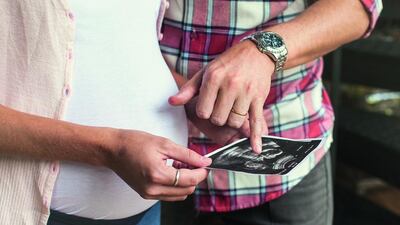From the moment of seeing a tiny line appear on a pregnancy test, most expectant mothers will begin planning for the new arrival.
And when the first grainy images of a clump of cells pulsating with a heartbeat appear on an ultrasound at just six weeks, many will start building dreams, envisaging their family growing and imagining how their own lives are about to be transformed.
But the devastating and little-known fact is that an estimated one in four pregnancies end in miscarriage globally.
The coldly clinical terminology of a “spontaneous abortion”, referring to the loss of a pregnancy before 20 weeks, gives little indication of the grief and sense of loss that often accompany such an event. Yet with each miscarriage, there is also the loss of hope.
Those who do talk openly about the personal tragedy they have suffered are often met with well-meaning but empty placatory gestures from friends and family, from being told they can simply try again to being reassured that it “wasn’t meant to be” and was never a life in the first place.
To the parents who have already picked out names and planned for the future, however, their heartbreak is as real as if the baby had been born.
Today marks Pregnancy and Infant Loss Remembrance Day, where would-be mothers are remembered around the world, as well as the culmination of the UK’s Baby Loss Awareness Week.
In the UAE, candles will be lit to form a chain of light crisscrossing the globe.
As Alexandra Sullivan from the Dubai-based group Little Angels says, simultaneously lighting candles while reciting the names of their lost babies sends a powerful message.
It is a source of comfort for other women to know that there are thousands of other mothers experiencing the same trauma and forming a worldwide support network.
That is the first step towards healing and being able to talk about a subject that is often viewed as taboo.
In a world where millions of dollars are pumped into fertility research and treatments but shockingly little is spent on investigating why women miscarry, it is also a significant gesture in acknowledging that their unborn babies' lives mattered.

